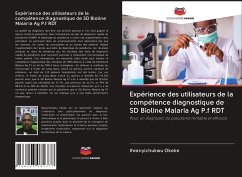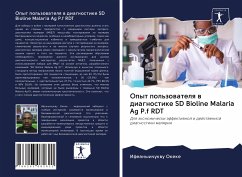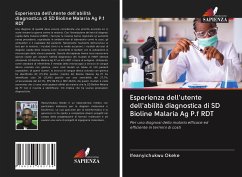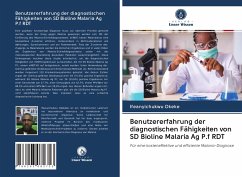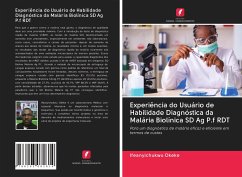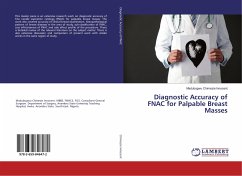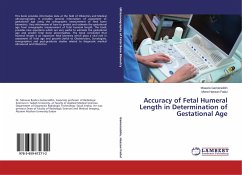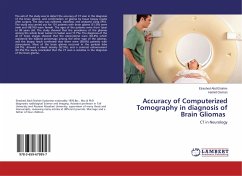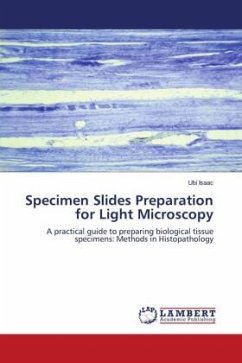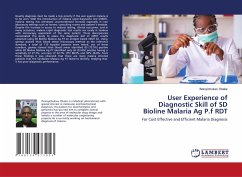
User Experience of Diagnostic Skill of SD Bioline Malaria Ag P.f RDT
For Cost Effective and Efficient Malaria Diagnosis
Versandkostenfrei!
Versandfertig in 6-10 Tagen
27,99 €
inkl. MwSt.

PAYBACK Punkte
14 °P sammeln!
Quality diagnosis must be made a top priority if the war against malaria is to be won. With the introduction of malaria rapid diagnostic test (mRDT), malaria testing has witnessed unprecedented increase especially in non laboratory settings such as homes, consulting rooms and patient's bedside. Despite the increase in access to malaria testing, clinical outcomes, and in many occasions, malaria rapid diagnostic test results are rarely in tandem with microscopy assessment of the same patient. These discrepancies necessitated this study to assess the diagnostic skill of mRDT results obtained usin...
Quality diagnosis must be made a top priority if the war against malaria is to be won. With the introduction of malaria rapid diagnostic test (mRDT), malaria testing has witnessed unprecedented increase especially in non laboratory settings such as homes, consulting rooms and patient's bedside. Despite the increase in access to malaria testing, clinical outcomes, and in many occasions, malaria rapid diagnostic test results are rarely in tandem with microscopy assessment of the same patient. These discrepancies necessitated this study to assess the diagnostic skill of mRDT results obtained using SD Bioline Malaria Ag P.f an antigen based mRDT kit. Using giemsa stained thick blood smear microscopy method as the reference standard, a total of 110 hospital patients were tested, out of these numbers, giemsa stained thick blood smear identified 83 (75.5%) positive while SD Bioline Malaria Ag P.f identified only 26 (23.6%) positive having a sensitivity of 27.7%, accuracy of 42.7%, PPV 88.5% and NPV 28.6%. From these findings it was observed that there are many malaria infected patients that the SD Bioline Malaria Ag P.f failed to identify. Implying that it has poor diagnostic performance.



